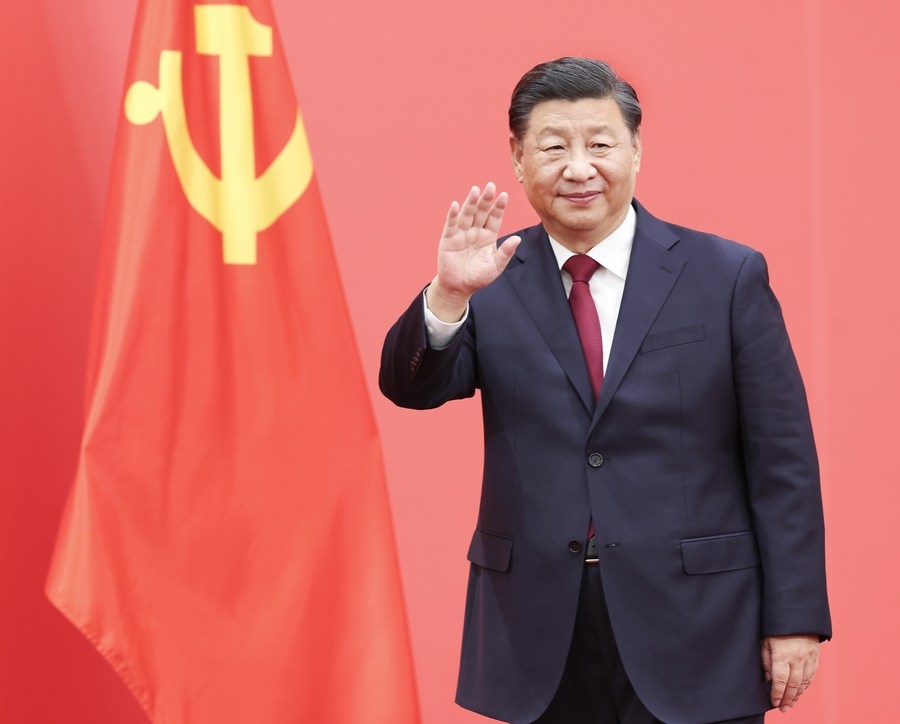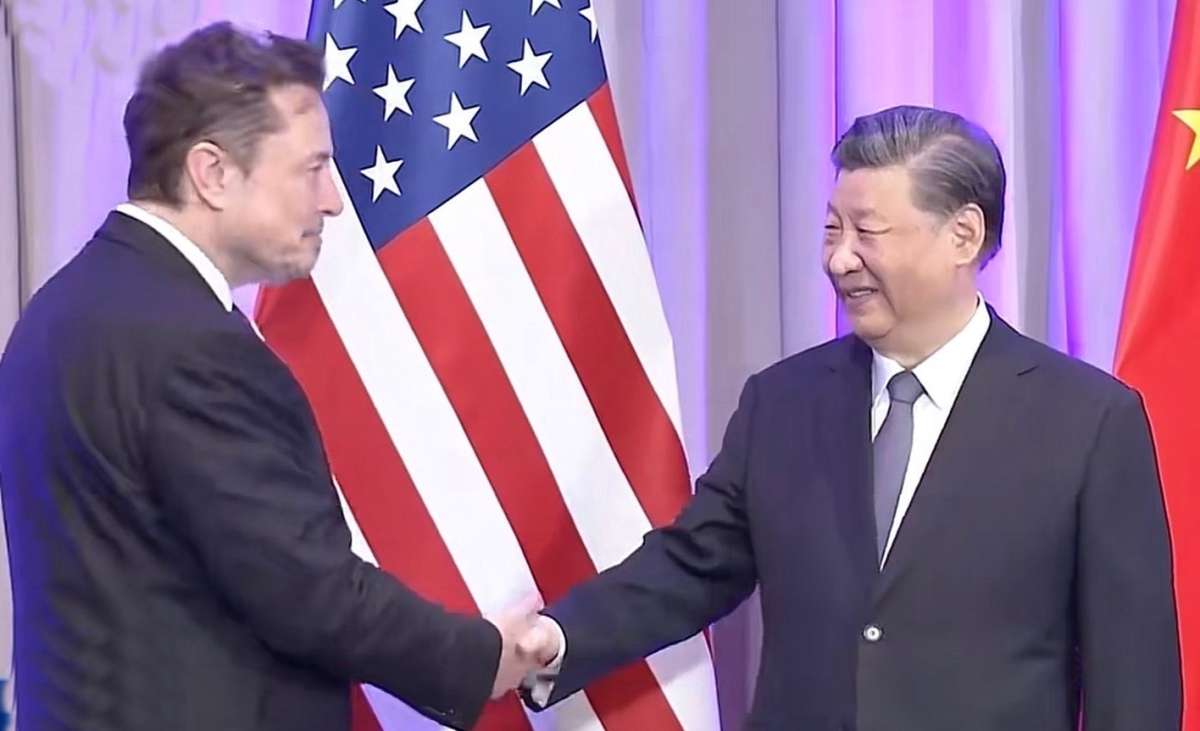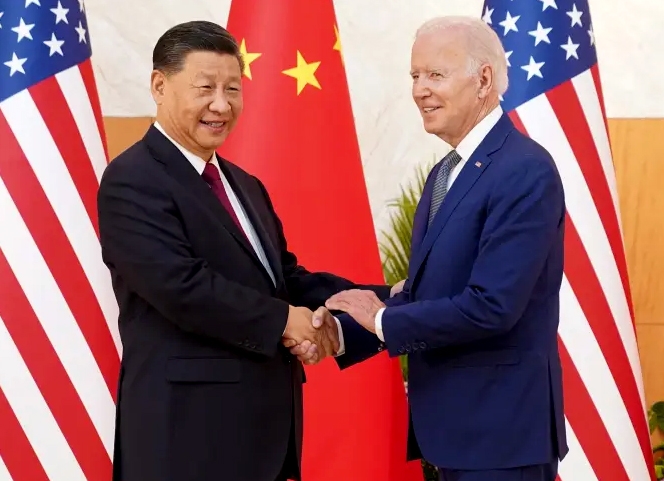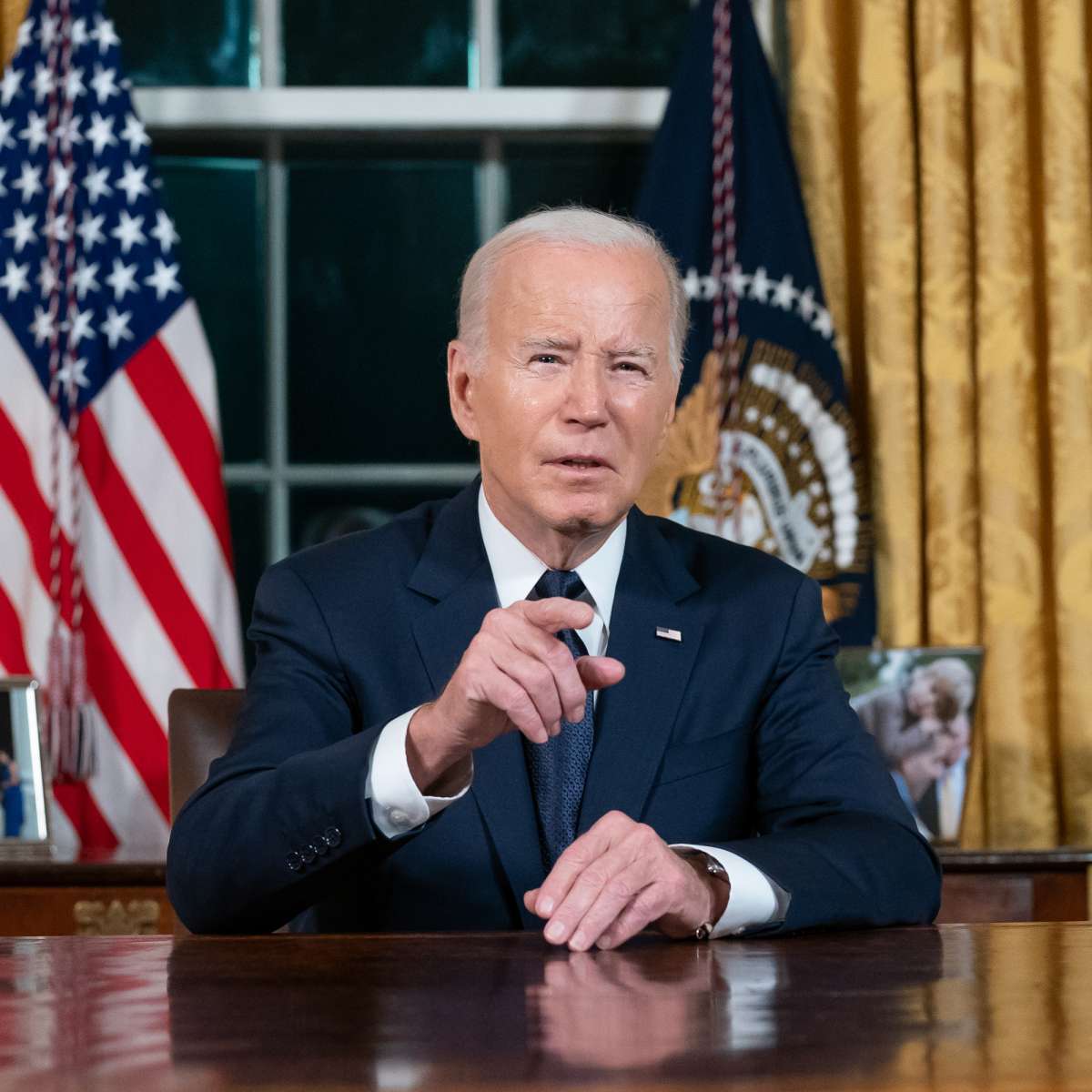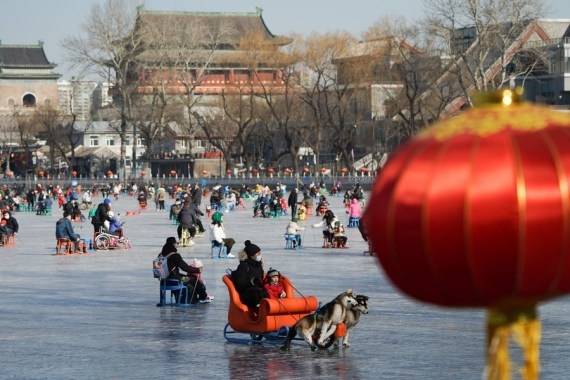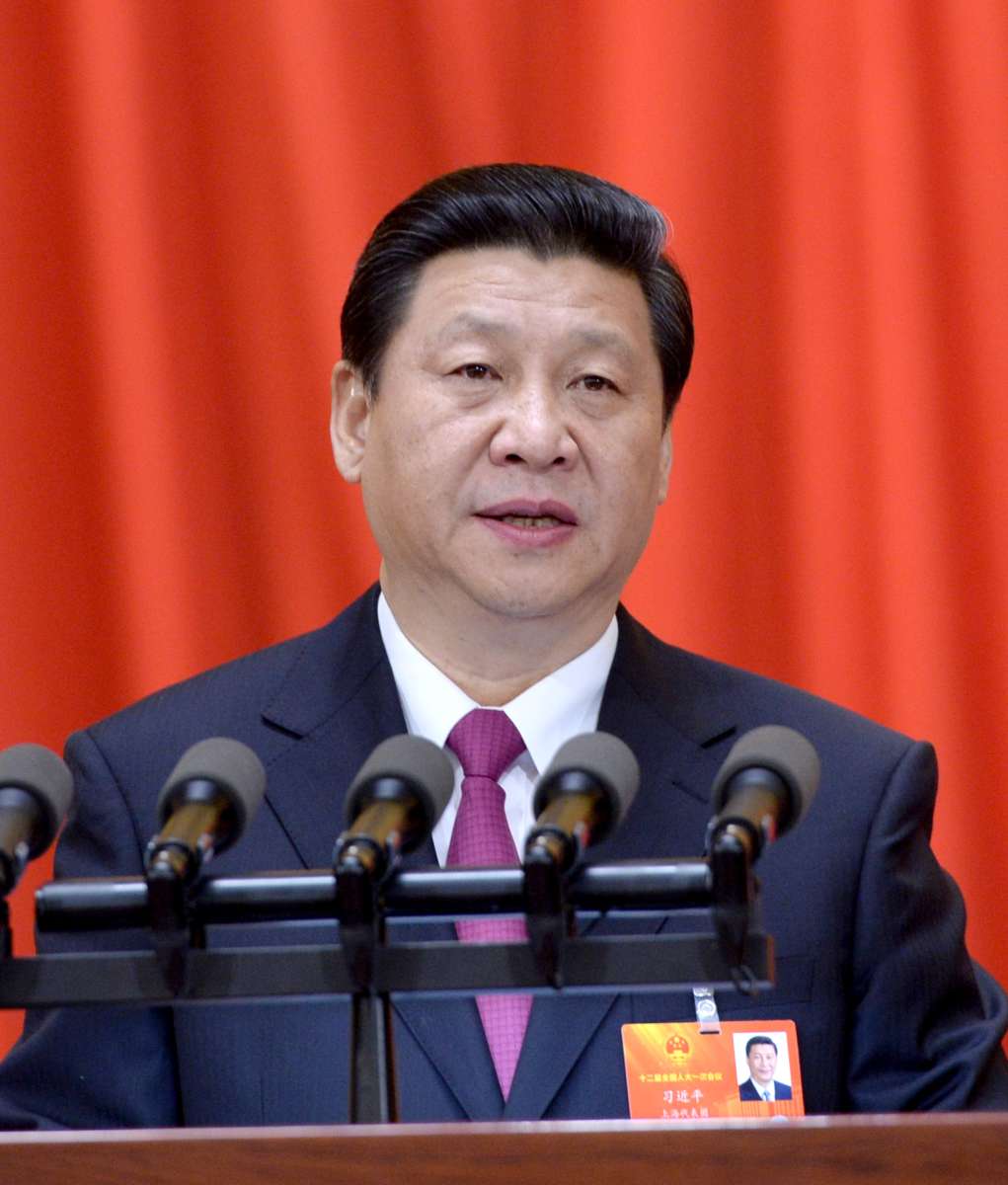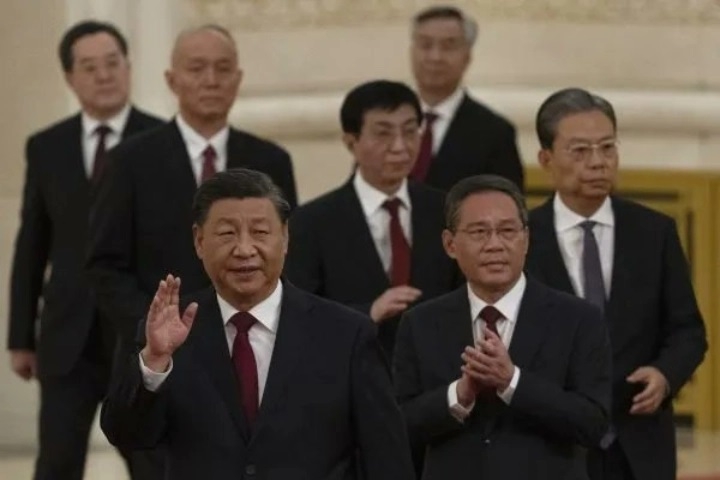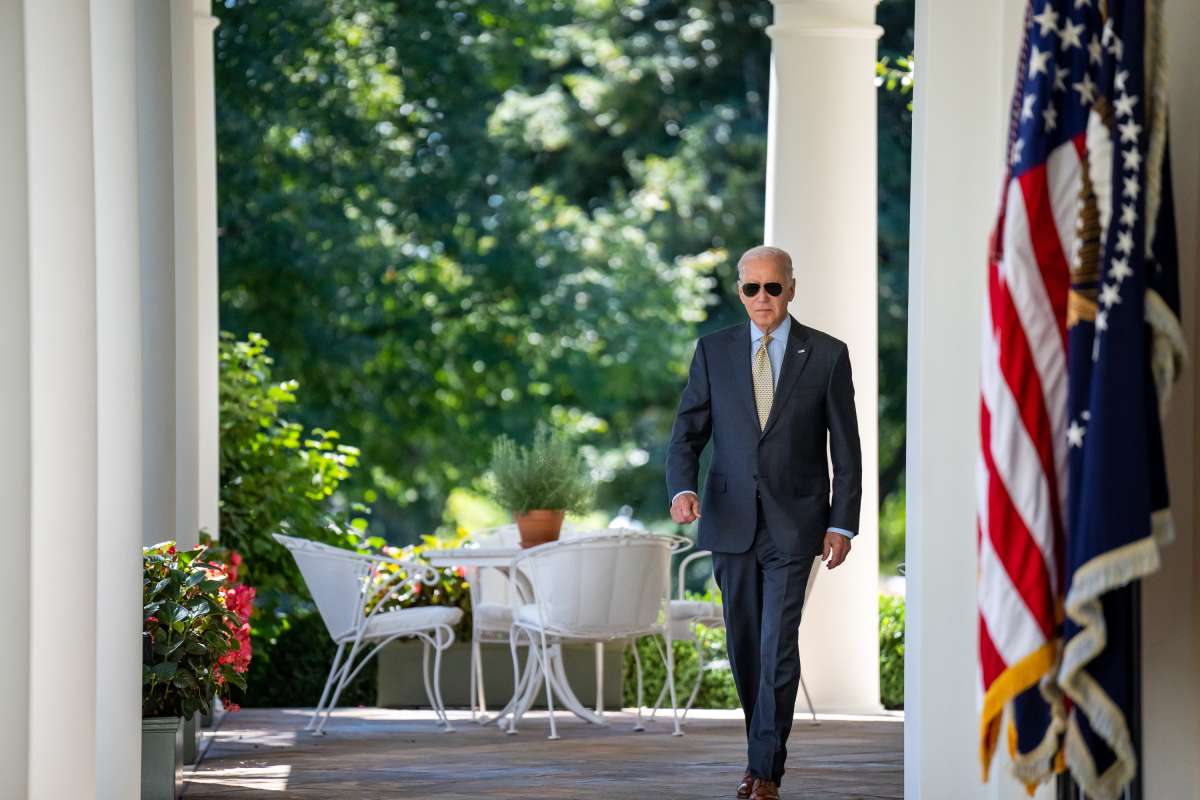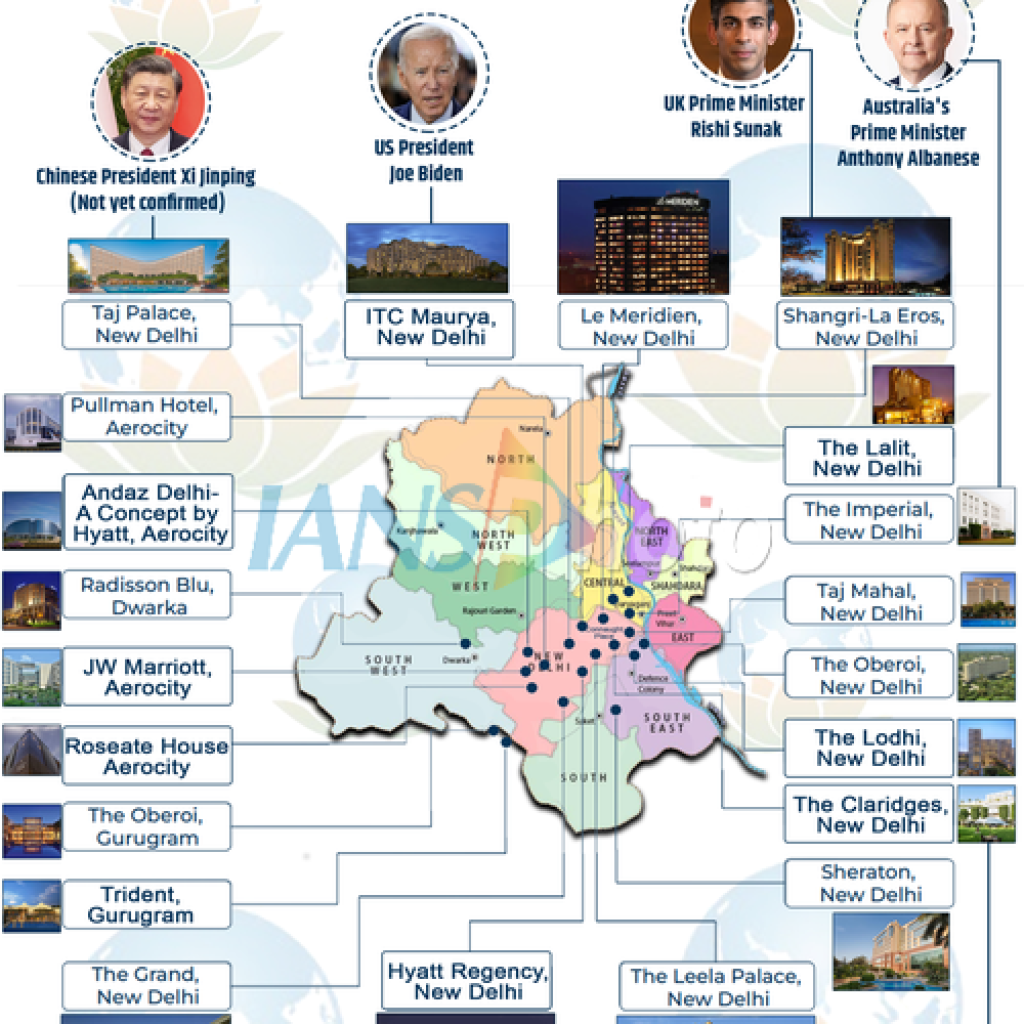The party has failed to address many concerns, viewing some issues raised by women as a direct challenge to its leadership…reports Asian Lite News
The Communist Party of China is aiming to push women back into traditional roles, as a solution to the country’s demographic crisis and economic slowdown, New York Times reported.
At a recent top political gathering for women in China, it was mostly one man who was seen and heard.
President Xi Jinping, took center stage at the opening of the National Women’s Congress. From the head of a large round table, Mr. Xi lectured female delegates at the closing meeting on Monday.
“We should actively foster a new type of marriage and childbearing culture,” he said in a speech, adding that it was the role of party officials to influence young people’s views on “love and marriage, fertility and family”, New York Times reported.
The Women’s Congress, held every five years, has long been a forum for the ruling Communist Party to demonstrate its commitment to women. The gesture, while mostly symbolic, has taken on more significance than ever this year, the first time in two decades that there are no women in the party’s executive policymaking body.
Notably, the officials at the event also downplayed gender equality. They focused instead on using the gathering to press Xi’s goal for Chinese women: get married and have babies. In the past, officials had touched on the role women play at home as well as in the work force. But in this year’s address, Xi made no mention of women at work.
According to the report, the party desperately needs women to have more babies. China has been thrust into a demographic crisis as its birth rate has plummeted, causing its population to shrink for the first time since the 1960s. The authorities are scrambling to undo what experts have said is an irreversible trend, trying one initiative after another, such as cash handouts and tax benefits to encourage more births.
Faced with a demographic crisis, a slowing economy and what it views as a stubborn rise of feminism, the party has chosen to push women back into the home, calling on them to rear the young and care for the old. The work, in the words of Xi, is essential for “China’s path to modernization”, New York Times reported.
But to some, his vision sounds more like a worrying regression, the report added.
“Women in China have been alarmed by the trend and have been fighting back over the years,” said Yaqiu Wang, the research director for Hong Kong, China and Taiwan at Freedom House, a nonprofit based in Washington.
“Many women in China are empowered and united in their fight against the twin repressions in China: the authoritarian government and the patriarchal society,” NYT quoted her as saying.
The party has failed to address many concerns, viewing some issues raised by women as a direct challenge to its leadership. Bursts of discussion over sexual harassment, gender violence and discrimination are silenced on social media. Support for victims is often extinguished.
Feminists and outspoken advocates have been jailed, and a #MeToo movement that briefly flourished in 2018 has been pushed underground.
The language used by senior officials at the Women’s Congress in Beijing was another glimpse of how the party sees the role of women.
President Xi has pushed a hard-line agenda to advance his vision of a stronger China that includes a revival of what he considers traditional values. At the congress, he encouraged female leaders to “tell good stories about family traditions and guide women to play their unique role in carrying forward the traditional virtues of the Chinese nation,” New York Times reported.
Meanwhile, in a departure from a two-decade tradition, Xi’s deputy, Ding Xuexiang, failed to mention in an opening address at the congress a standard phrase: that gender equality is a basic national policy.
And even as Xi himself did nod to gender equality, he spent most of his speech elaborating on family, parenting and fertility.
As per the report, this stands in stark contrast to a decade ago, when top officials stressed the importance of both equality and women’s self-realization, said Hanzhang Liu, a political studies professor at Pitzer College who has examined speeches by senior officials at several congresses over the past two decades.
“Women’s work was once about women for themselves, women for women’s sake,” said Liu, referring to the party’s jargon for gender issues.
“Now what they are saying is that women’s rightful place in society — where they can do the most meaningful work — is at home with the family,” NYT quoted her as saying.
But the Women’s Congress is not where the battle for their rights is being fought. Organized by the All-China Women’s Federation, a group that works to promote party policies and is funded by the party, it tends to represent the political status quo.
As a result, much of the discussion this year was focused on encouraging party leaders to promote traditional family values. The language reveals the calculus that officials have made: that extolling the virtues of China’s past will inspire women to focus on family. This, the party hopes will help with demographics.
Sending women back to the home and out of the work force is also convenient at a time when China faces its biggest economic challenge in four decades and the government is under pressure to improve a social welfare system that is severely underdeveloped and unable to support a rapidly aging population, New York Times report.
“Women have always been viewed as an instrument of the state in one way or another,” said Minglu Chen, a senior lecturer at the University of Sydney who studies gender and politics in China.
“But now we have to think about China’s political economy. It benefits the party to emphasize women returning to the home, where they can care for children and for the elderly,” NYT quoted her as saying.
The trend of fewer marriages and births has been years in the making, however, and President Xi is goading women into a role they have long rejected. Many young and educated women in China’s biggest cities have relished their financial independence and are wary of marriage because of the pressure on them to have children and give it all up, the report stated.
Young adults have expressed ambivalence about marrying and settling down, and they worry about the future as the economy slumps and unemployment soars. China is also among the most expensive countries in the world to raise a child, according to the report.
For all of Xi’s calls on women to take up the cause of having babies, the party’s efforts are unlikely to bolster the birth rate enough to reverse the country’s population decline. That is, unless it is willing to resort to more punitive measures to disadvantage or marginalize women who choose not to have children.
While unlikely, it is something that Fubing Su, a political science professor at Vassar College, said was not completely out of the question.
During the “one-child” policy, the party resorted to fines, forced abortions and sterilizations in an attempt to slow population growth for decades until it ended the restrictions in 2015, New York Times reported.
“If the party could sacrifice women’s body and birth rights for its one-child policy,” said Mr. Su, “they could impose their will on women again.” (ANI)
ALSO READ-Inflows Lag Behind Outflows in China’s FDIs


